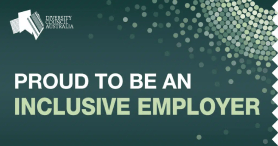Exceptional Individuals, a UK organisation, defines neurodiversity as the variation of cognitive functioning in humans. It says neurodiversity is an educational approach that accepts various neurological conditions – such as ADHD, autism, dyspraxia, and dyslexia – exist because of healthy changes in the human genome. Neurological variations are the same as any other human variation.
According to the US organisation Healthline, neurodiversity refers to the spectrum of neurodivergence in people. The spectrum includes those living with autism, attention deficit hyperactivity disorder, Tourette syndrome, depression, dyslexia, schizophrenia, and intellectual disabilities.
People with neurological differences are referred to as being neurodivergent, which reflects the rich array of differences, abilities, and strengths they possess.
Neurodiverse conditions such as autism are seen as variations of human characteristics such as being left-handed or having brown hair – people who are neurodiverse just have a brain that works differently.
Neurodiverse people may have difficulty interacting with their peers, may have had noticeable speech delays as children, or experience sensory issues such as being unable to tolerate crowds, noise, or feeling too hot or too cold. At LiveBig, we can assess these needs and develop the right support to ensure our clients thrive in their new career.
Research shows that there are benefits to businesses that hire staff members who are neurodiverse.
“People on the spectrum often demonstrate trustworthiness, strong memories, reliability, adherence to rules and attention to detail. They are often good at coding – a skill in high demand,” the Training Industry states on their website.
Neurodiversity has many different forms and degrees – but also each individual has their own strengths and characteristics that make us who we are.
Some of the strengths associated with neurodiverse people might include:
- An ability to “think outside the box”
- An understanding of systems, including maths and computer programming
- An ability to understand and play music
- Above-average attention to detail
- Strong visual-spatial skills
Neurodiversity Hub states that in 2018 about one in 70 Australians or almost 355,000 people, were autistic, according to an estimation by Autism Spectrum Australia.
In March 2018, 29 per cent of people actively participating in the National Disability Insurance Scheme (NDIS) were autistic.
At LiveBig, we are a specialist allied health and assessment services provider for people with a disability, including people who are neurodiverse and people who are on an NDIS plan.





